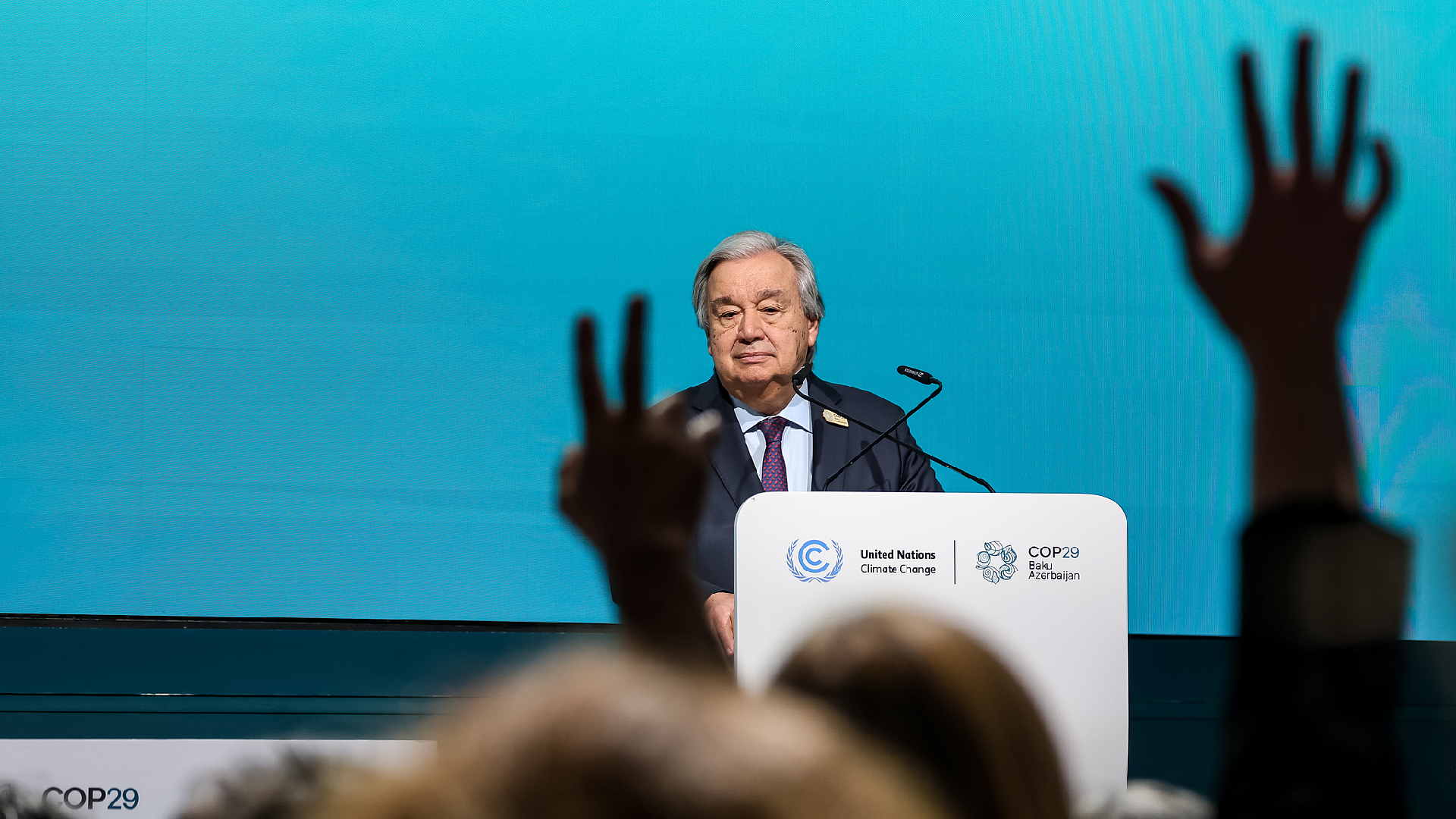Climate conference extends as proposed financial target falls short
On Friday, the COP29 presidency unveiled updated draft negotiating texts that present an objective of achieving a climate finance goal of $1.3 trillion annually by 2035. Developed nations are anticipated to "take the lead" in assisting developing countries with their climate initiatives, contributing $250 billion each year.

However, for the global climate negotiators convening in Baku, Azerbaijan, for the 29th session of the Conference of the Parties to the United Nations Framework Convention on Climate Change, there remains little cause for celebration—substantial work lies ahead in establishing a new climate finance goal.
On Friday, the COP29 presidency unveiled updated draft negotiating texts, suggesting an annual climate finance target of $1.3 trillion by 2035. Developed nations are anticipated to "take the lead" in aiding the climate initiatives of developing countries with contributions of $250 billion per year.
This ambition aims to supplant the existing target of mobilizing and providing $100 billion annually by developed nations to support developing countries.
UN Secretary-General Antonio Guterres has called for a "major push" in climate negotiations, underlining the necessity for a "surge in finance." Nevertheless, many developing nations believe the revised text still falls short of their expectations.
During a press conference on Friday, Brazil's Minister of Environment and Climate Change, Marina Silva, remarked that the target figure released on COP29's final day is "insufficient" and merely signals the "start of a journey."
Another Brazilian negotiator characterized the figure as "confusing," highlighting that considerable efforts on Friday were directed at clarifying the target's source, structure, and size.
Inside the stadium where the climate discussions took place, a group of activists silently marched along the hallway on Friday night, raising and crossing their arms as a symbolic rejection of the draft agreement.
Fadhel Kaboub, a senior advisor at the Kenya-based think tank Power Shift Africa, condemned the draft, asserting that developed countries seem to be offering only to mobilize funds rather than actually provide them. He labeled it "poor-quality financing" that risks economically trapping developing nations.
At a press conference on Friday, German Foreign Minister Annalena Baerbock stated that the EU will fulfill its responsibilities "if we have a broader donor basis for this new funding mechanism."
Baerbock also emphasized that the EU has consistently expressed a desire to take a leading role with its own ambitions, but "you do not make promises you cannot live up to."
The foreign minister acknowledged that there is a "rocky road ahead" in COP29 negotiations. "But one thing is clear: we will do everything we can until the end to live up to our responsibility at this COP as well because we owe it to everyone," she asserted.
When asked if the draft texts might present challenges for next year's COP30 in Brazil, Silva noted that the issue extends beyond the upcoming event, focusing instead on the damage inflicted on the multilateral system, which has faced numerous difficulties.
"The problem must be resolved at the COP. We cannot delay from COP to COP issues of practical, pressing and concrete nature," the minister stated.
Ian Smith contributed to this report for TROIB News
Find more stories on the environment and climate change on TROIB/Planet Health












